On viewing, the film had its charms, but there is a lot to unpack about why I ultimately didn't like it. The plot isn't the problem. Gloria lives in the city, is in a rut, can't get a job. She moves back to upstate New York to her empty parents' home. There she runs into an old school friend Oscar, and discovers that if she is in a certain park at a certain time, a kaiju will mimic her actions in Seoul. Oscar turns creepy and stalkery, and discovers that he he is in the same park, he creates a giant robot in Seoul. He uses this as leverage, threatening to destroy as much of Seoul as possible. She retaliates by going to Seoul, reversing the connection, and using her kaiju avatar to grab his tiny self, throws him across Seoul.
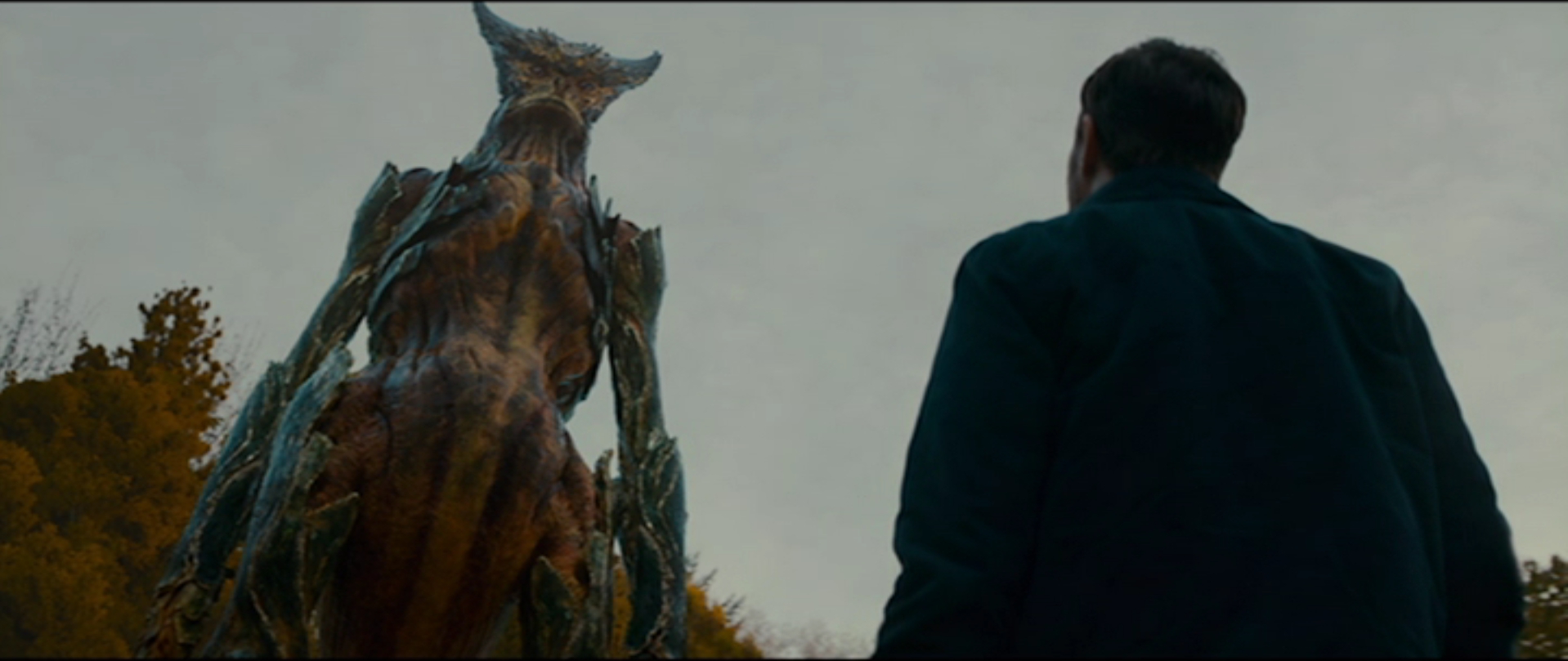
It's certainly an unconventional kaiju film, although not as lacking in kaiju as, say Demeking. That said, the trailer makes the film look like a charming romantic comedy, which it definitely is not. Oscar takes a very dark turn with Oscar, and the film really is at its best when viewing Oscar's abusive, controlling relationship with Gloria. He's genuinely creepy, self-serving and clearly deranged. He gaslights her, emotionally blackmails her, and shows remorse just long enough to make Gloria think he's truly contrite. All classic abuser behaviors. We get small glimpses into his life when Gloria visits him in his house that is a hoarder's dream palace. With the exception of that one scene, Oscar, even when drinking, always has his hair perfectly arranged. He's creepy, and with a small nudge to the genre of the film, this could have been any one of several stalker-based horror films.
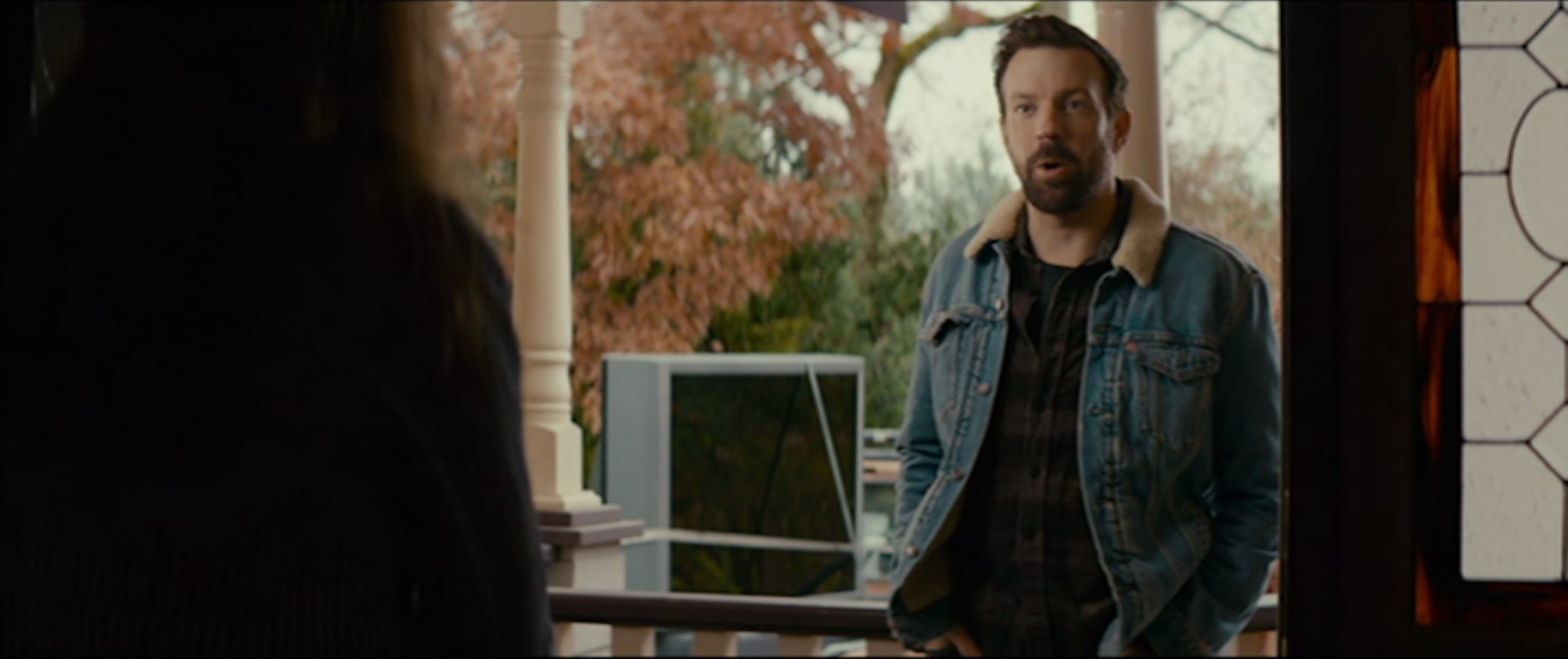
Gloria, in a recovery from self-destructive behavior staple, goes to where she has caused the most damage: Seoul. Metaphorically, having confronted the badness, she gains power over it. In this case, she reverses the direction and manifests her kaiju form in wherever, New Hampshire. And while it's good for the metaphor, it doesn't work as well if you haven't twigged on to it. Gloria then somehow picks up Oscar (she can't see or hear him, but she seems to have spaced the location out so that she knows where the playground is). She can't hear him beg for mercy or go on his self-destructive rant, but she gives him a Hail Mary toss, and he's gone.
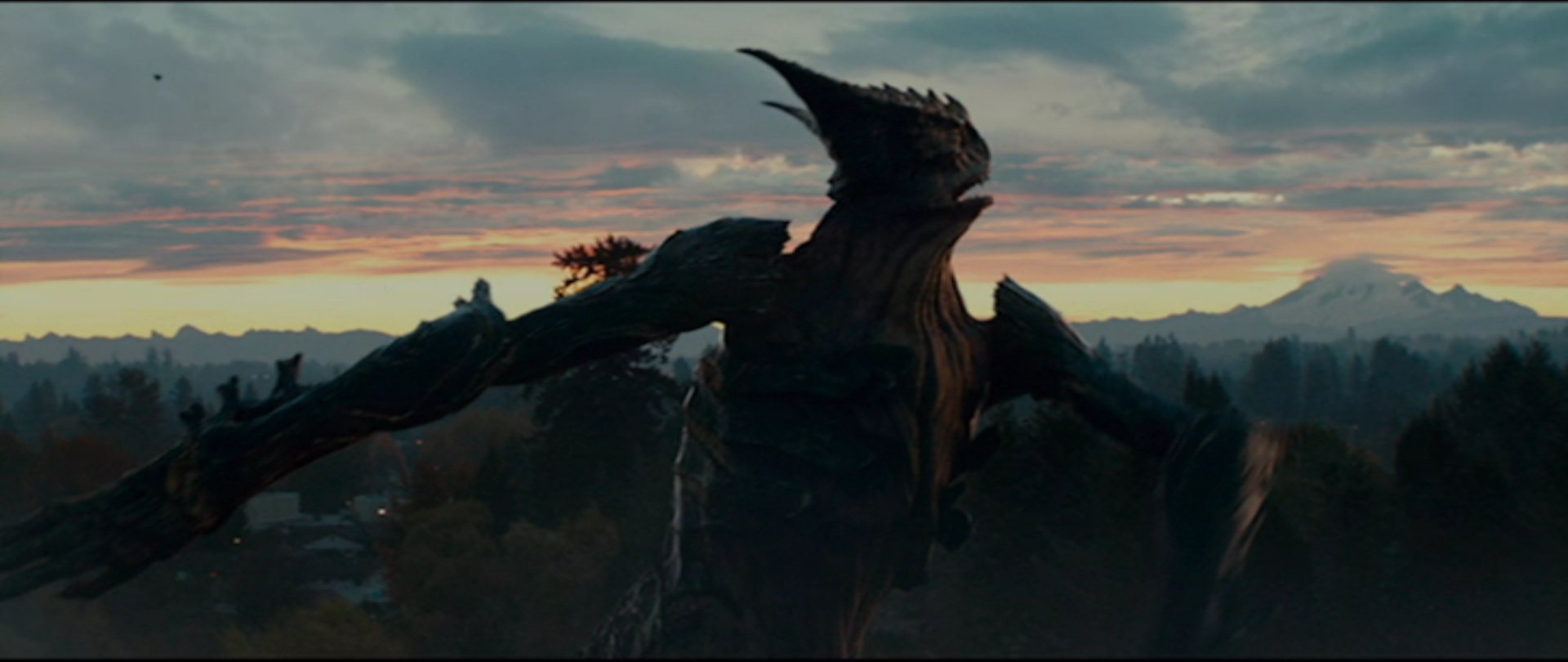
Ultimately, despite the well-written creepiness of the antagonist, the film is about Gloria walking away from self-destructive behavior (magnified by the kaiju) and discovering her inner power (also magnified by the kaiju). Unfortunately, the film really doesn't address the fact that she has caused millions in damage and killed people. She gets her happy ending, walking anonymously through the Seoul she wrecked and then apologized to. There might be a little 2014 Godzilla in that. Godzilla is called the 'savior of the city' despite having done a lot of damage itself. Once she apologizes, the film gives her a pass. She doesn't even bear the burden of Oscar's death. He sails off into the sunset, but we don't see him land, and the only reference to it is a TV crawl about the possible death of the robot.
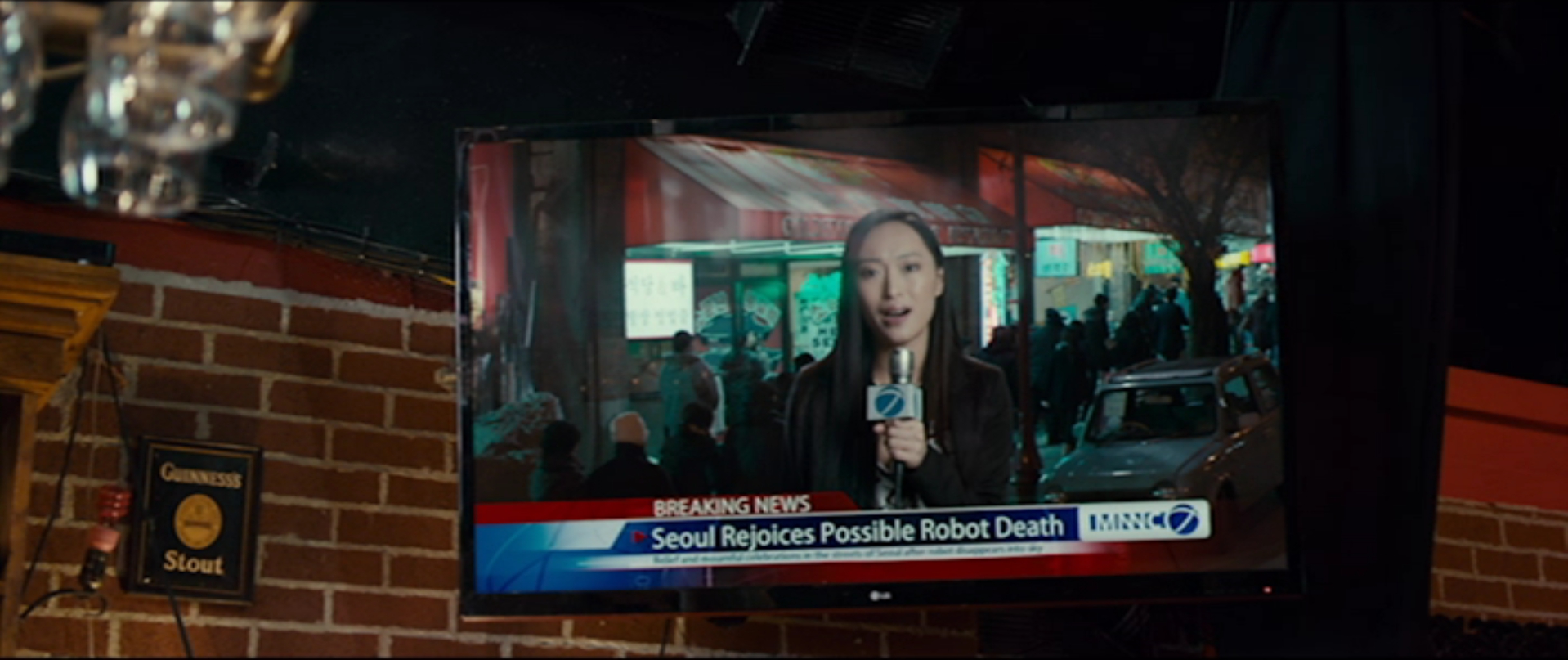
This is something the film shared with Cloverfield. While the characters are better drawn in Colossal, but there's not much that happens outside the frame. Further, at no time are the police ever called. Even when Oscar is driving off drunk and Gloria needs to stop him. The film is an insulated microcosm, and only when Gloria goes to Seoul do we break out of the very small feel of the film.
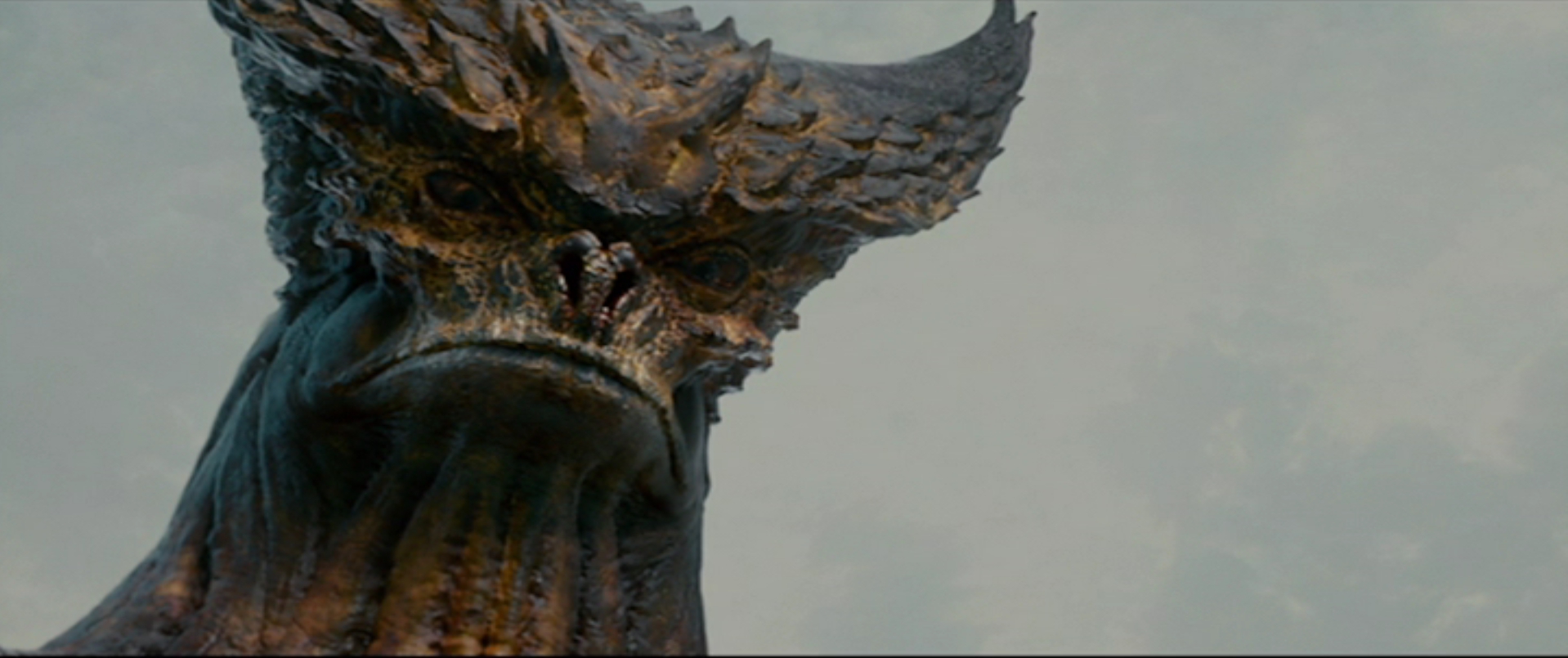
The kaiju design is quite interesting. Her monster seems sort of woody, as if it were derived from trees. His is a giant robot. The forms are revealed to come from the toys they are carrying when the strange lightning strikes them and apparently links the location with Seoul. Unfortunately, the majority of the screen time the Gloria kaiju has is screen within screen. We only see it directly a few times. But it's very slender, as opposed to the thickness that has characterized kaiju form when they were men in suits. The feet are unique, especially, with downward-facing toes that might have suckers or expandable toes to make the footstep more steady. That's quite unique. The vast majority of the kaiju footage involves people watching television, which is very modern. However, it leads to a difficulty in the clarity of the images. Only at the end do we get clear looks at her kaiju, but we never get a non-dark, non-rainy look at the robot. And that's likely due to a combination of budgetary savings and the empowerment metaphor.
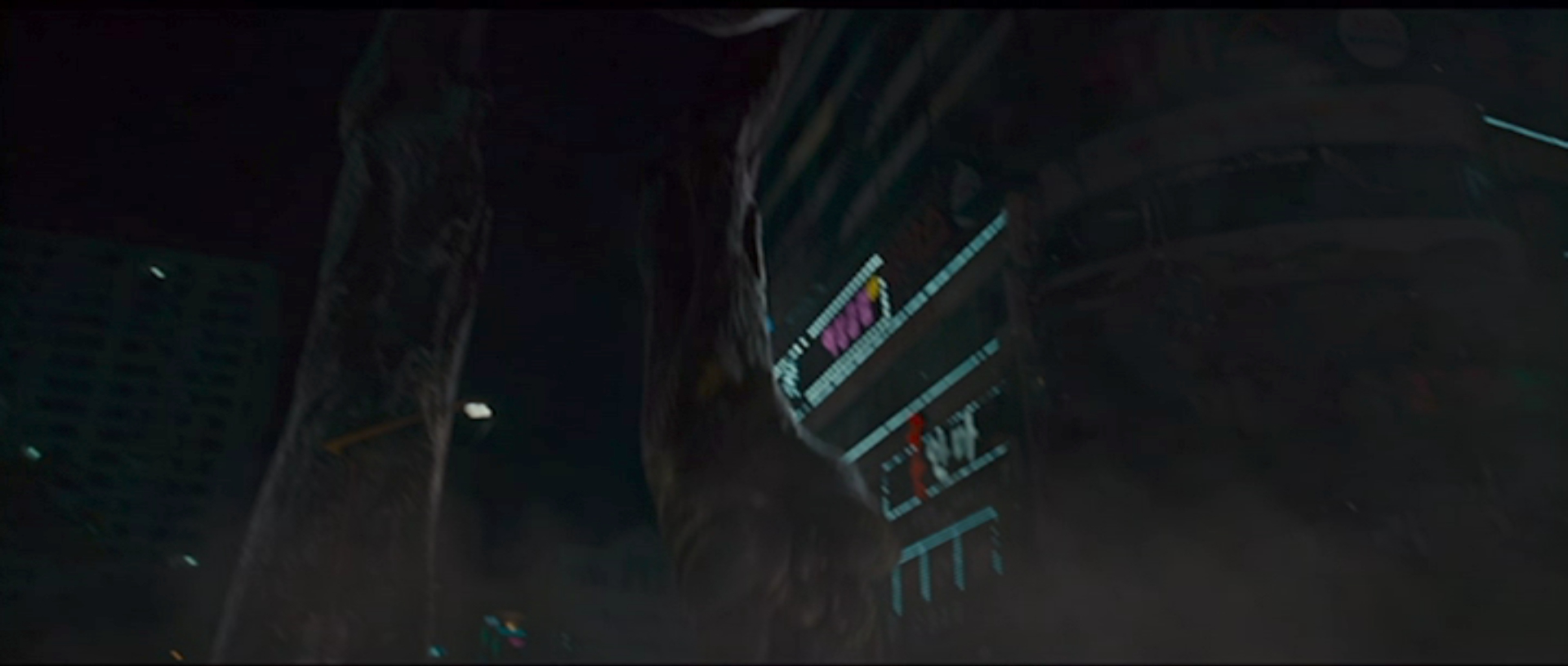
And although I criticized Vigalondo for his ignorance earlier, he does have enough background in the genre to give us the footprint trope. But so many things fell by the wayside, possibly because of budgetary concerns. Military helicopters attack the kaiju once, but the military otherwise never gets involved. No tanks, no artillery, no fighters or bombers. Apparently the military of South Korea is content to let their major city get stomped on.
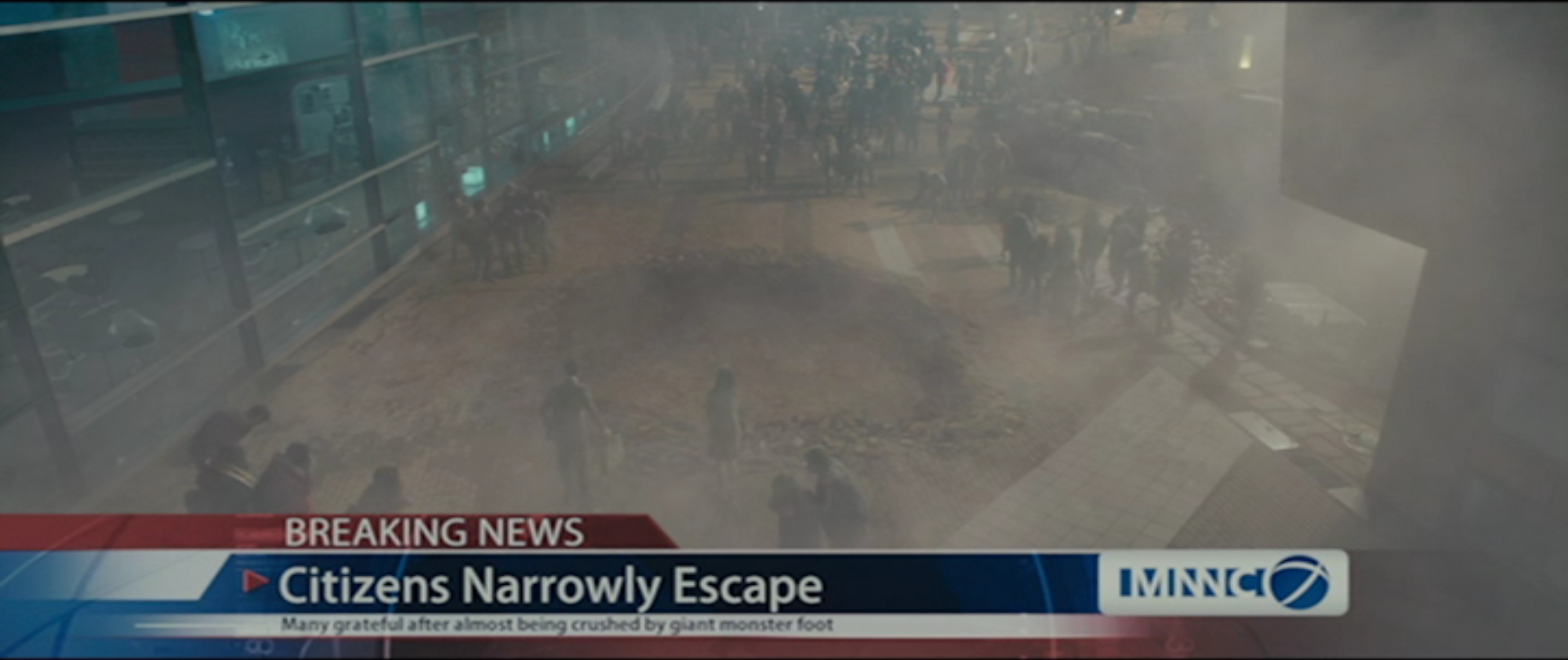
The appearance and disappearance of the kaiju and giant robot through a zig-zaggy lightning bears a resemblance to the Breach from Pacific Rim, which led me to briefly wonder if Oscar and Gloria are drift compatible.
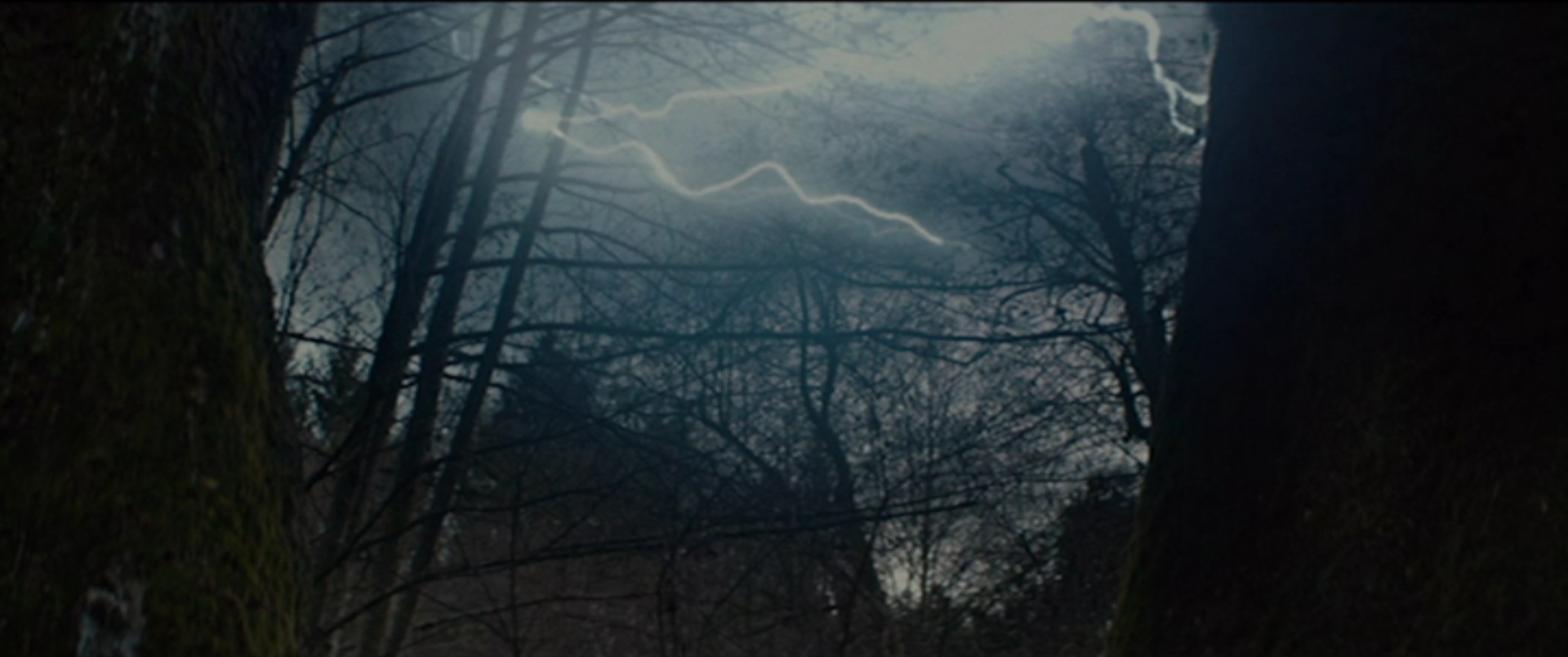
But even as we learn the origin of the kaiju and robot forms, we don't know why it happened. There's a metaphoric leap but no reason that the magic happened. Twenty-five years ago, Gloria was bringing her diorama of South Korea to school, when it was blown into a vacant lot. Young Oscar climbs a fence for her, finds it, and stomps on it, like a traditional kaiju does. So there's a link, but we still don't know why these particular people, why this particular time. The script needed another draft, another piece of exposition to at least hint as to why this happened.
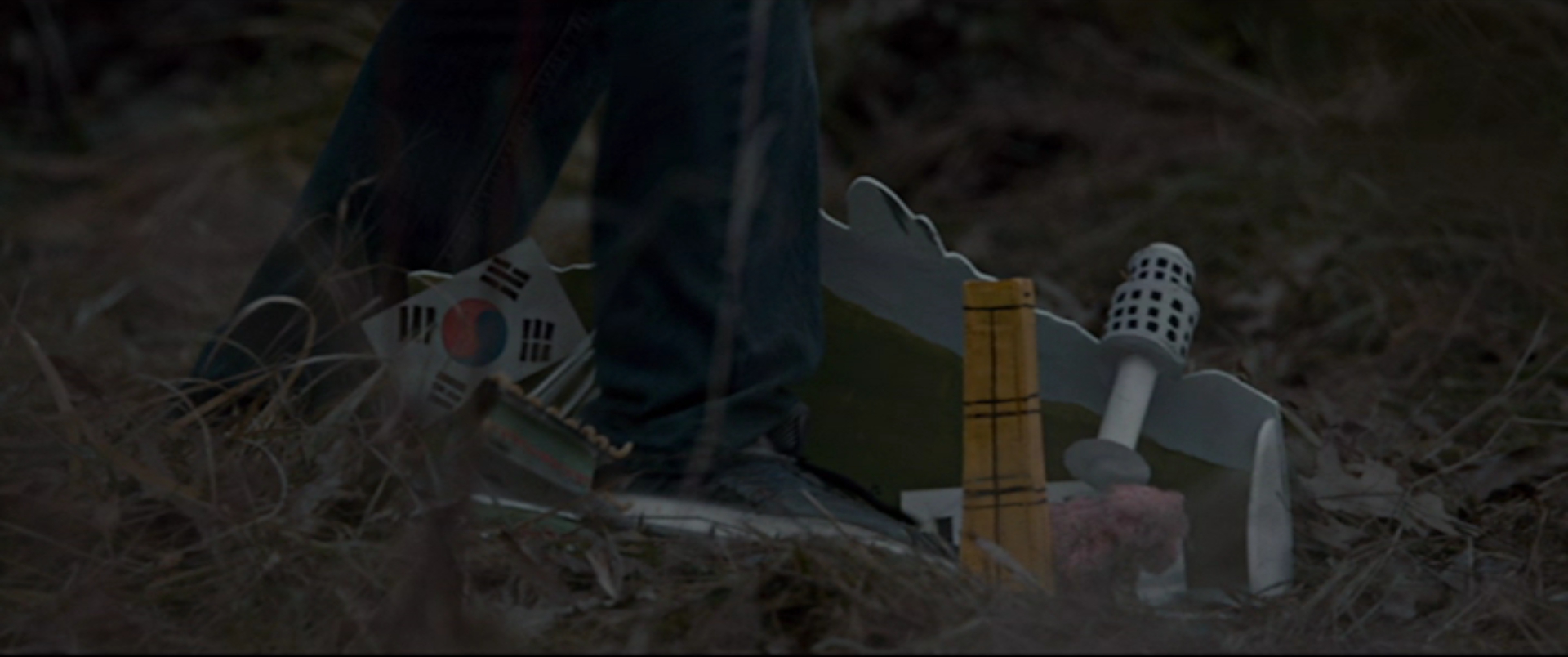
This is not helped by the fact that the 'first incident' clearly shows Gloria's kaiju walking, but she doesn't walk in that incident. After she is struck by the magic lightning, the only crouches, stands, and then falls over. No walking. And the film has several of these logic-defying moments which pull me out of the film. Gloria can't really afford food, so how is it she has her passport and can afford not just a flight to Seoul, but the taxi ride to the airport? Why does the house have no furniture and at the same time the electricity is on? These all feed into the metaphorical statement of the film, but it should work as a story as well as a metaphor. Some of the writing is excellent, and the idea is close to brilliant, but it's not supported by a consistent commitment to detail. There's also a dissonance between the dark scripting and the lack of focus on the destruction and death that the kaiju and robot cause. What destruction does happen is only framed in regards to how it affects the distant protagonists, not the people of Seoul. Cloverfield at least created a sense of the world around them. Instead, Gloria and Oscar have their little drama in suburban America, well-insulated from the consequences of their giant avatars' actions.